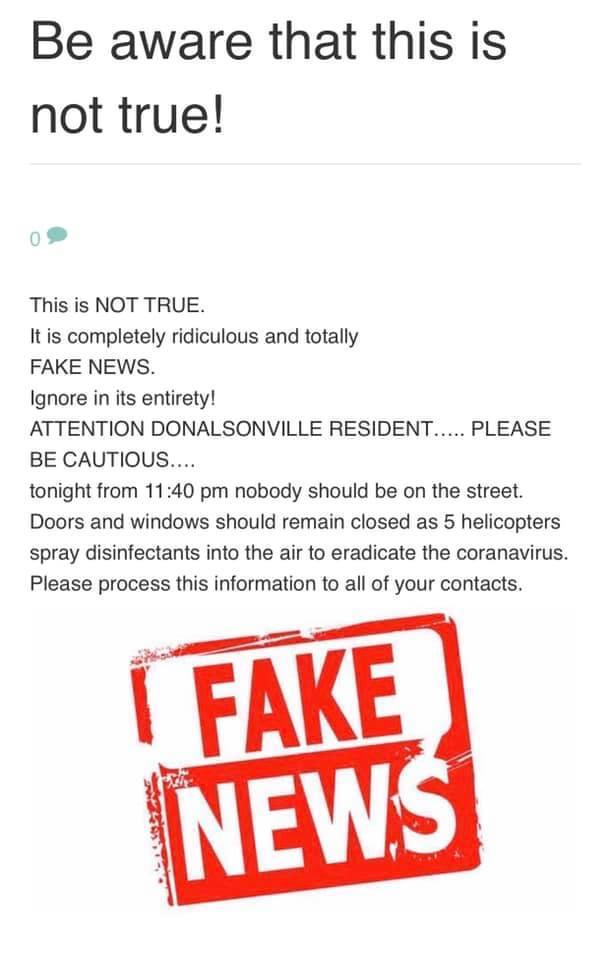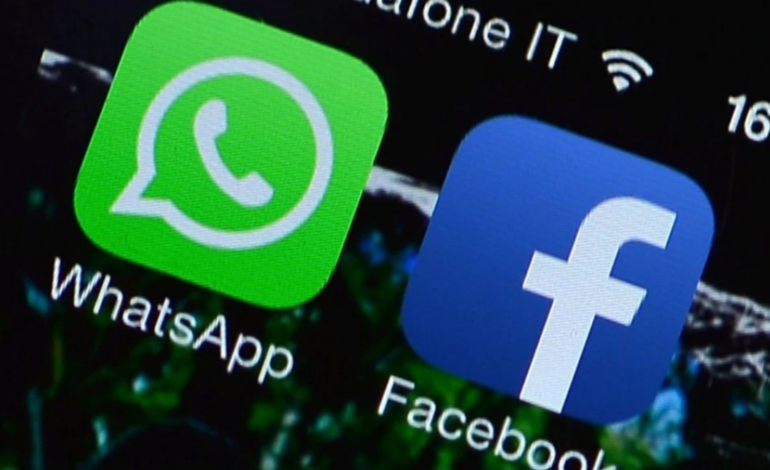Closed messaging apps popular among Michigan’s immigrant communities and those with families living abroad are crawling with misinformation.
It is a hard problem to capture.
Closed and encrypted messaging apps such as WhatsApp make it cheap and easy for users to send texts and make phone calls. But, many of the app’s group chats are hidden, which makes it hard for fact checkers to monitor.
“It’s good to remember that WhatsApp is owned by Facebook and Facebook promised there would be some measures in WhatsApp for the election and it did not happen,” said Daniel Acosta-Ramos, an investigative researcher with First Draft, a nonprofit coalition that investigates online information.
Acosta-Ramos researches misinformation in Latino communities. WhatsApp is popular among people from Latin America, where unlimited texting isn’t common in cellphone plans, he said. Facebook and other platforms have been sluggish when it comes to removing or correcting misinformation in Spanish compared to with posts in English, according to a Reuters report.
These gaps in countering misinformation may allow false claims to flourish in immigrant and non-English-speaking communities, Acosta-Ramos said.
WhatsApp isn’t the only messaging app with this issue.
Tack-Yong Kim, the publisher of the Michigan Korean Weekly and MI Asian, said many of his readers use KaKaoTalk, a Korea-based messaging app. It is the largest source of misinformation in Korea, said one former staffer from the Republic of Korea’s National Assembly Defense Committee in an interview with researchers at the Harvard Kennedy School’s Belfer Center for Science and International Affairs.
Despite competitors such as KaKaoTalk and the China-based WeChat, WhatsApp is the most popular messaging app in the world. Almost half of the U.S. adult Hispanic population uses it, according to a June 2019 survey by the Pew Research Center for Internet and Technology.
“Those apps, they’re easy to use, they’re great for your family chat and et cetera, but they can also be misused greatly for several reasons, misinformation being one of them,” Acosta-Ramos said.
Misinformation is false information shared without knowing it is false. Disinformation is false information created or shared with the intent to mislead people.
Misinformation directed at Latino voters before the 2020 election shaped how they viewed President-elect Biden and President Trump. In September, Politico highlighted the barrage of false stories, including ones calling Biden a pedophile, that targeted Latinos in Florida.
Elias Gutierrez is the founder of the Latino Press, one of the most recognized Hispanic media companies in Michigan, according to Global Detroit. His publication, Latino Detroit, expended significant resources to counter fears in the Latino community about filling out the 2020 census. The Latino Press sent bilingual people to stand outside grocery stores in Detroit to educate people about how to fill out applications. During these conversations, people would ask about voting.
“There we realized the fear of the federal government,” Gutierrez said.

A false Facebook post was circulated on WhatsApp.
False stories on Facebook told them it was dangerous to vote, he said. Among them was the false notion, the false idea spread that the government would record who people voted for and they might face consequences.
“You must understand that if someone is a new citizen, they always have families in their environment without legal documents,” Gutierrez said.
Three major themes emerged among the misinformation that targeted Latino voters, Acosta-Ramos said: Fear of socialism, racial tensions between the Latino and Black communities and mail-in voting. He noted a lot of messaging portrayed the Black Lives Matter movement as harmful for the Latino community.
“It would be my educated guess that kind of messaging was stronger in places where both the Black community and Latino community are living in similar geographic spaces,” Acosta-Ramos said.
Much of the misinformation appeared to originate in South Florida among the Cuban population, Acosta-Ramos said. But it spread fast and it was shared across the U.S., he said. Often, Acosta-Ramos would see a piece of misinformation on Facebook and later see it on WhatsApp.
In Michigan, WhatsApp helped to spread a debunked text that targeted Dearborn voters. Michigan and Dearborn have the highest percentage of residents of Arab descent among states and cities in the U.S.
On Election Day, Michigan Attorney General Dana Nessel warned about a message targeted at Dearborn residents that read: “URGENT ALERT: Due to a typographical error, Scantron ballots being used for the 2020 Election has swapped sensors. If you are intending on voting for Joe Biden, you must bubble in Trump and vice versa. –Federal Berue [sic] of Investigation.”
The American Civil Liberties Union heard multiple voters in Dearborn received the text and alerted the Attorney General’s Office.
People who called the Arab Community Center for Economic and Social Services, a Dearborn-based social services agency, told the agency their parents had received the messages, which were also being passed around on WhatsApp.
Robocalls as well as WhatsApp and Facebook messages seeking to dissuade people from voting targeted Arab Americans, Rima Meroueh, the director of the National Network for Arab American Communities, told the Free Press.

Meroueh said she saw an uptick in misinformation targeting Arab Americans and people of color this year.
Not all of the misinformation is coming from inside the U.S., though the information coming from other countries isn’t always part of a coordinated effort such as Russia’s in 2016.
“People from our community capture misinformation from the other side of the Atlantic Ocean and circulate it back here,” Osama Siblani said.
Siblani, founder of The Arab American News based out of Dearborn, saw a video of French President Emmanuel Macron, which was dubbed in Arabic. In the dubbed translation, Macron insults Islam and makes outrageous statements about the Muslim community, Siblani said. But the translation was entirely false, Siblani said. Macron was talking about free speech, according to Siblani’s wife, who is fluent in French. Siblani reached out to Facebook to have the video removed, but it is still available.
“Misinformation affects the Arab American and Muslim communities exactly the same as it affects the non-Arab communities,” Siblani said.
The social media platforms are a major problem, Siblani said. People from the Arab American community will send Siblani stories they find on social media and ask if the post or video or image is true. He often tells them he isn’t sure. His paper is a major source of news and information for Arab Americans and he said he doesn’t have the time to correct everything coming across his readers’ social feeds.
“There is no way to stop this tide, no way we are able to compete,” Siblani said.

A video of French President Emmanuel Macron, which was dubbed in Arabic with a false, offensive translation and posted on Facebook and garnered thousands of likes and comments.
“The truth is lost”
Ideas Beyond Borders is a nonprofit that, in part, tries to combat misinformation. It was started by human-rights activist Faisal Saeed Al Mutar, an Iraqi-born American who came to the U.S. as a refugee in 2013. Ideas Beyond Borders worked with Wikipedia to make sure all information about U.S. elections is constantly updated and verified, Al Mutar told the Free Press.
On Twitter, his organization found a tweet in Arabic about ballots left on the side of the road went uncorrected on Twitter the day after the election. The photo was not of discarded ballots, but of letters a New Jersey postal worker abandoned in August 2018.
Kim, the publisher of the Michigan Korean Weekly, said his weekly’s circulation is about 10,000 households. Similar false claims of election tampering permeated his community. What people are basing their world views on is sometimes so far from reality, Kim can’t even find it online.
“I was so shocked that so many people are motivated by a lot of information that is not true,” Kim said.
The same fractures along party lines seen in the rest of the U.S. are reflected in Kim’s readership, he said. Readers argue with him about what he publishes.
Readers segregate and then so do advertisers, Kim said. This was the first year Trump supporters pulled their ads from his newspaper based on what they saw as bias against Trump, he said.
“They are in the comfort zone of taking their news, the news that satisfies them,” Kim said. “It is not a matter of true or false.”
– Ashley Nerbovig covers mis- and disinformation for the Detroit Free Press. Contact her at anerbovig@freepress.com. This project was produced with support from a grant from the American Press Institute.






Leave a Reply